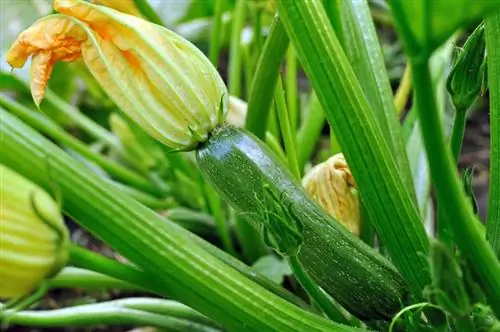- Author admin leonars@hobbygardeners.com.
- Public 2023-12-16 16:46.
- Last modified 2025-01-23 11:20.
In nature, the liverwort (Hepatica nobilis) occurs primarily in beech forests with calcareous soils. When planting specifically in the garden, care is made much easier if the right location is selected and prepared appropriately.

How do you properly care for liverworts?
Liverwort care includes a suitable location under deciduous trees, even soil moisture without waterlogging, occasional watering during dry periods and no pruning measures. Fertilization is optional; nutrient-rich, humus-rich soil is usually sufficient. Liverworts are hardy.
How much water does the liverwort need?
Liverworts don't like long dry periods, but they also don't tolerate waterlogging well. Therefore, in clayey soils, care should be taken to ensure adequate drainage through incorporated compost or chopped pieces of wood. Since liverworts generally require consistent moisture, plants in pots should be watered at least every two days in summer. In a location protected from drying out under trees or bushes, occasional watering during a dry phase is usually sufficient.
When is the best time to transplant liverworts?
Since liverworts are protected in Germany, for example, you are not allowed to dig up specimens from the wild. Liverworts purchased from offspring should ideally be planted in September and October to give the plants a good chance of growth and to prevent them from drying out. Suitable locations are:
- Hamamelis
- Forsythia
- Hazelbush
- Beech
Soil areas under coniferous trees such as conifers should be avoided, as these can acidify the soil over the years and therefore make it unsuitable for liverworts.
Does liverworts need to be cut?
Pruning measures should be avoided on the liverwort, as all interventions usually disturb it more than help it. Dying plant parts do not need to be removed, although a protective layer of leaves can be placed on potted plants before winter as winter protection.
Is liverwort susceptible to diseases and pests?
Apart from location-related deficiency symptoms, the liverwort is not susceptible to diseases or pests. The ants that can often be found near liverworts do not harm them, but are busy helpers in propagation through seeds.
Should liverworts be fertilized?
Liverworts thrive on nutrient-rich and humus-rich soils even without additional fertilizer. Incorporating compost and mild long-term fertilizers such as horn shavings (€52.00 on Amazon) can have a positive effect, but the roots of the liverworts must not be affected when working the soil.
How do liverworts overwinter?
In the field and in pots, liverworts are absolutely hardy thanks to their special survival buds. In addition to foreign leaves, the plant's own leaf material, which does not always die completely, serves as winter protection.
Tip
Since the flowering period of liverworts is very short, a combination with other spring bloomers such as daffodils in one location is a good idea.






